ONLINE LEARNING VS FORMAL EDUCATION
ONLINE LEARNING VS FORMAL EDUCATION
Hello! Today will be a little different than my usual journal entries. I’ll spend less time discussing what I learned in my classes this week and more about other topics. I’m actually pretty happy with this one and I hope you enjoy reading it and find it insightful.
Progress of Analytics Course
I realized yesterday that I’m almost finished with The Analytics Edge on edX. I think there are only two weeks left of the class.
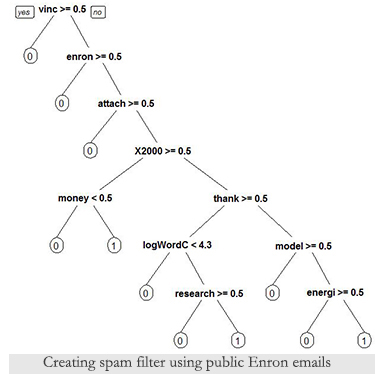
Sometimes I feel as though I’m progressing through it slowly compared to my math courses, but it’s a different animal altogether.
In my estimation, I spend approximately 10-14 hours a week on analytics lectures and assignments. A lot of work goes into the class, which I really enjoy.
I rarely pay attention when a class doesn’t challenge me, so that’s an important part of my learning. The lack of challenge has gotten me in trouble in my past schooling. It wasn’t until college that I began caring about my classes and striving to be better.
Before taking the analytics class, I assumed I’d be able to complete at least two weeks of course material per week and that I’d be finished within a month. It surprised me that I actually followed the weekly curriculum exactly. I even fell behind by a day for 2 or 3 weeks.
That stressed me out more than you know.
Needing to write my journal before I had completed my weekly assignments drove me crazy. Thankfully, I’m caught up this week, so I have my peace of mind while writing this.
I have enjoyed the class overall and I’ve learned a lot of valuable techniques and skills thus far.
Most of the negative reviews I’ve read about the class are in regard to the datasets we use each week. All of the data is clean and organized, making it easy to analyze. In the real world, data is messy. It’s impossible to interpret. It’s disorganized. It’s flawed. It’s missing variables. It’s a disaster. We are not exposed to this type of data here.
This really isn’t a problem with The Analytics Edge, because that’s not what it’s aiming to teach:
- First of all: It’s a beginner’s course.
- Two: It’s an analytics class and the focus is using statistical methods in R.
- Thirdly: It doesn’t claim to teach aggregation (collecting data) or data munging (converting raw data into another format).
- Second to last: If the course taught the aforementioned techniques, it would be twice as long and many of the datasets and statistical techniques would need to be eliminated.
- In conclusion: We would not learn predictive analytics if the instructors had decided to include only raw data in each of our lessons and assignments. It’s better to reserve that training for another class.
I apologize for the different grammatical tenses in this list. I found them hilarious. Alas, the “Gozer the Grammarian” inside me is extremely upset about it (I believe that term was coined by Adam Mordecai. I used it because I didn’t want to refer to myself as a grammar nazi).
Online Learning vs Formal Education
Several people have asked me if I would prefer to return to college or university for my educational needs, rather than taking MOOC (Massively Open Online Courses).
That question elicits a rather complex answer. The simple answer is, it depends. It depends on the type of course I’m studying.
I will say that I would absolutely love to return to university and obtain a master’s degree. I believe I spoke about that briefly in my first journal entry. Unfortunately, it’s too expensive at the moment and not possible.
If I was studying engineering, biochemistry, or one of a countless number of other fields, it would be a requirement for me to attend a university if I intended to pursue them as a career. I could study and watch as many videos as possible, but there would be no alternative to hands-on learning. Also, most companies wouldn’t hire me as an engineer without an engineering degree. That could be a huge liability for them.
Fortunately, my field of study does not have such requirements. Everything I do requires a computer, and that’s about it. It is possible to learn just as much through free online courses as I can through formal education.
Although I can AND am learning R programming, computer science, and data analysis through online classes, I would actually prefer to learn them in a university.
R, in particular, has a pretty steep learning curve for most people. It’s different from anything else I have ever learned and it doesn’t come naturally for me. I’m becoming more and more comfortable with R commands, but if you ask me to write an algorithm, I’ll just stare at you like you insulted my ancestors.
Granted, I am still on my first class, so it’s not expected for me to be able to create programs. But I’m still concerned about future coursework that will include more than merely running statistical analyses on datasets. I say it like that’s the easiest thing in the world. It really isn’t, but compared to writing programs, it is.
This is where a formal education would be extremely advantageous. I could be wrong, but my opinion is that learning more difficult subjects would be easier in a paid institution.
Also, it would be a great personal accomplishment to obtain a master’s degree.
On the flip side, MOOCs allow you to take any subject or class you want, and learn at your own pace.
If you are a slow learner, or studying a tricky topic, you may need more time and it would be stressful if the class had moved on while you’re stuck behind.
Or, if the coursework is relatively simple, you can speed through it without having to wait for the formal class to catch up. That also prevents you from needing to take one course per semester before you are able to enroll in a class that requires the completion of the last one.
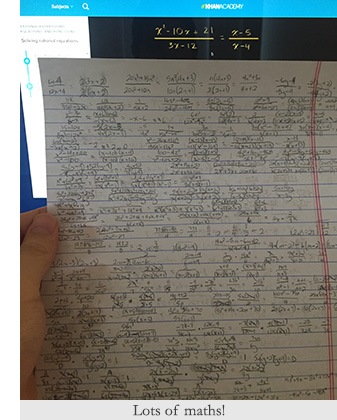
Math, for myself anyway, is a prime example of the latter example.
If I decided to begin with algebra in a university, as I did on Khan Academy, I would still be taking algebra I.
Alternatively, I have completed algebra I, geometry, and the majority of algebra II in less time than it would take to complete one of those courses otherwise. It would take several years for me to complete all of the math I need for my data science goals.
Currently, I estimate that I can do algebra I, through the calculus classes, to linear algebra in about a year. That’s 9 math classes, each taking a semester in college. Granted, some of those can be taken concurrently, but most have prerequisites.
It’s also A LOT less expensive if you’re interested in taking many classes in your unending desire to learn more, like myself. Whether you need to pay per unit/credit, per year, or both, college can be incredibly expensive.
Obviously, MOOCs are free. However, there are online classes anyone can take for a fee in order to receive a certificate. It’s not as prestigious as a degree, but it can be useful if you’re interested in demonstrating your knowledge to a potential employer.
I suppose it depends on your personal goals and abilities. Some people have trouble focusing with online learning. It’s easy to get distracted when you’re at home on your personal computer.
It does get easier. The more time you spend on it, the simpler it is to focus.
It’s better when you're taking classes that have some kind of video lecture, which I believe most MOOCs have. Otherwise it wouldn’t be a class, it would be a textbook or solely lecture notes.
I applaud you if you’re able to learn from a textbook alone. That would be a lot more difficult for me.
I suggest allotting a specific amount of time each day to your class, even if it’s only a half-hour or hour. It’s a slippery slope once you start slacking off, and it makes it all the more difficult to get back into a routine.
I also recommend ensuring you have some type of privacy while studying, if possible. If you have a family or live with others, try to separate yourself from them if you can. Most libraries have computers free to use if you’re unable to focus at home.
Somewhat unrelated, but I wrote my entire novel in a Starbucks and the library a couple years ago because I wasn’t able to concentrate on my writing at home. You just have to find what works best for you.
Current Coursework Updates
I’ve already written quite a bit today, but I wanted to give you a short update on what I completed this week.
Math:
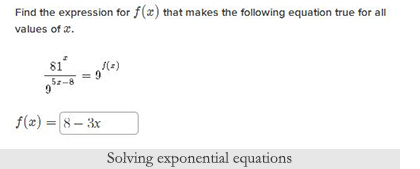
I am still on algebra II through Khan Academy. I did finish the dreaded rational expressions from last week. Since then, I have done exponent properties, logarithms, and the introduction to trigonometry. There is a more in depth class on trig that I’ll take after algebra, but the two are generally connected.
At first, I disliked logarithms quite a lot. But they’re actually fun and incredibly useful for solving exponent problems and in applications in the real world.
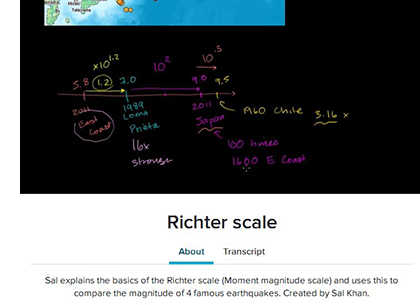
The Richter scale, used to measure the amplitude of earthquakes, is a logarithmic scale. Today the moment magnitude scale (MMS) is used in lieu of the Richter scale, as it’s more accurate, especially with larger earthquakes. The media still reports magnitudes on the Richter scale, but they use similar measurements, so it’s not the end of the world if they refer to it by the incorrect name.
Benford’s Law, which is just crazy and cool and I don’t even know, also uses logarithms. If you’re not familiar with this mathematical law, and I’m still not even after watching two videos with Sal Khan and Vi Hart, I definitely suggest reading more about it. It’s really interesting.
I’d like to say that I’ll complete algebra II by next week, but I won’t. Extenuating circumstances (i.e.: longer than expected lessons) always seem to delay my expectations.
Analytics:
As I mentioned above, I’m nearly finished with my analytics class.
I completed week 6 yesterday. This week, we focused on clustering algorithms. Clustering, as you may imagine, is the grouping of similar variables or data points.
Netflix uses clustering in order to better make movie and television show recommendations to its members. They cluster movies of similar genres to recommend based on viewing history. For example, it might recommend Jurassic Park if you enjoyed Men in Black since they’re similar genres. Their algorithms are obviously a lot more complex than simple clustering, but that is part of it.
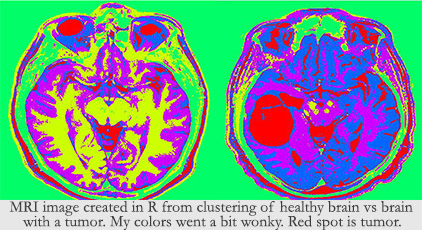
We also used clustering in image segmentation, specifically with comparing magnetic resonance imaging (MRI) images. This is all done in R with a relatively small number of commands, which is pretty awesome. For our lesson, we used one MRI image of a healthy brain and “clustered” different shades of the brain. Then we used that clustering to analyze an image of a brain with a tumor to identify the size and geometry of the tumor.
In our lessons and assignments, we only used basic clustering. Utilizing more advanced techniques and programs in R would have created a much more detailed and accurate analysis. But the ability to do amazing things with analytics is there and it’s being used today to improve lives or to make things more efficient.
Conclusion
To clarify about people asking me about my preference between online and formal education, no one asked me through my blog. I’m not entirely sure if anyone actually reads my journal entries. I’m against using any type of tracking, adware, or browser cookies on my site, so there’s no way of knowing.
If you are reading, thank you!! I really appreciate it! Comment below, if you want.
I hope you enjoyed this entry. Take care and I’ll see you next week!

Author and hobby digital artist. Barry aspires to become a data scientist and better himself as a person.